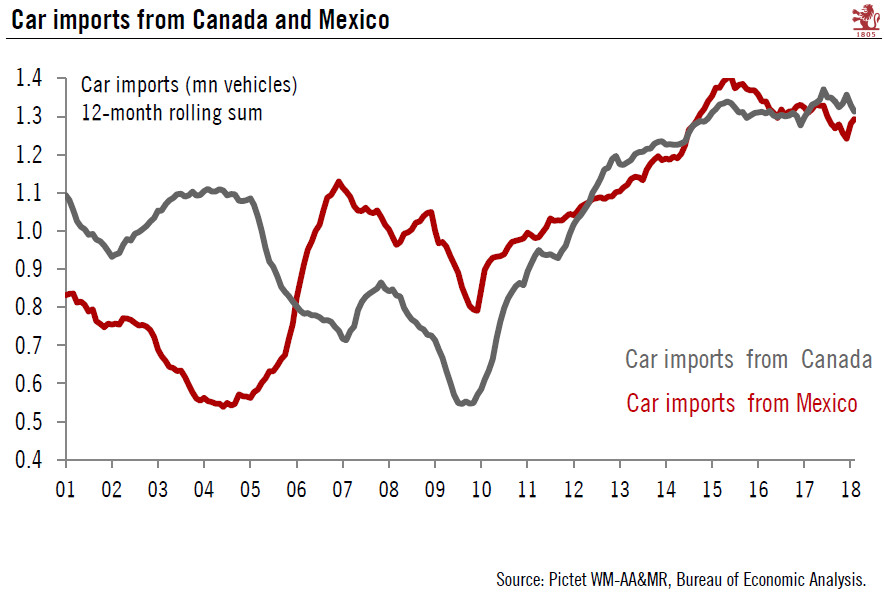NAFTA talks look likely to drag on, taking a backseat to US trade talks with China. At the end of the day, any re-negotiated treaty might include only relatively small changes.It is looking like House Speaker Paul Ryan’s deadline to have a final North American Free Trade Agreement (NAFTA) deal on his table, set for 17 May 2018 will not be met. This deadline was to meant to ensure that a new NAFTA deal could be approved during Congress’s ‘lame duck’ session -between the midterm elections in November, and the first sitting of the new Congress in January 2019 (the lame duck session is usually a period of reduced political tension, providing a window of opportunity to pass NAFTA legislation).Missing the deadline may mean that the new NAFTA treaty’s approval is left to the new Congress. This
Topics:
Thomas Costerg considers the following as important: Macroview, NAFTA update, US trade deficit
This could be interesting, too:
Cesar Perez Ruiz writes Weekly View – Big Splits
Cesar Perez Ruiz writes Weekly View – Central Bank Halloween
Cesar Perez Ruiz writes Weekly View – Widening bottlenecks
Cesar Perez Ruiz writes Weekly View – Debt ceiling deadline postponed
NAFTA talks look likely to drag on, taking a backseat to US trade talks with China. At the end of the day, any re-negotiated treaty might include only relatively small changes.
It is looking like House Speaker Paul Ryan’s deadline to have a final North American Free Trade Agreement (NAFTA) deal on his table, set for 17 May 2018 will not be met. This deadline was to meant to ensure that a new NAFTA deal could be approved during Congress’s ‘lame duck’ session -between the midterm elections in November, and the first sitting of the new Congress in January 2019 (the lame duck session is usually a period of reduced political tension, providing a window of opportunity to pass NAFTA legislation).
Missing the deadline may mean that the new NAFTA treaty’s approval is left to the new Congress. This means approval of a new Treaty could be stalled further, especially as many polls show that Democrats are on track to win several House seats, and even potentially get a majority in the House.
The Trump Administration’s trade focus is more on China these days and the NAFTA question seems to have taken a backseat. This is good news, as it means the risk of a messy withdrawal by the US has receded.
The future of talks with Mexico will be especially important to watch, especially as there is a good chance that ‘populist’ candidate Andres Manuel Lopez Obrador (AMLO) will be elected in presidential elections on July 1. The US’s has a large trade deficit with that country. This is concentrated in the car sector, where NAFTA negotiations are particularly tricky.
All in all, we think NAFTA talks will drag on. Ultimately, we continue to see a ‘skinny deal’ as the most likely outcome, i.e. with only with technical tweaks to the existing trade agreement. We do not expect the US to permanently withdraw from NAFTA.

